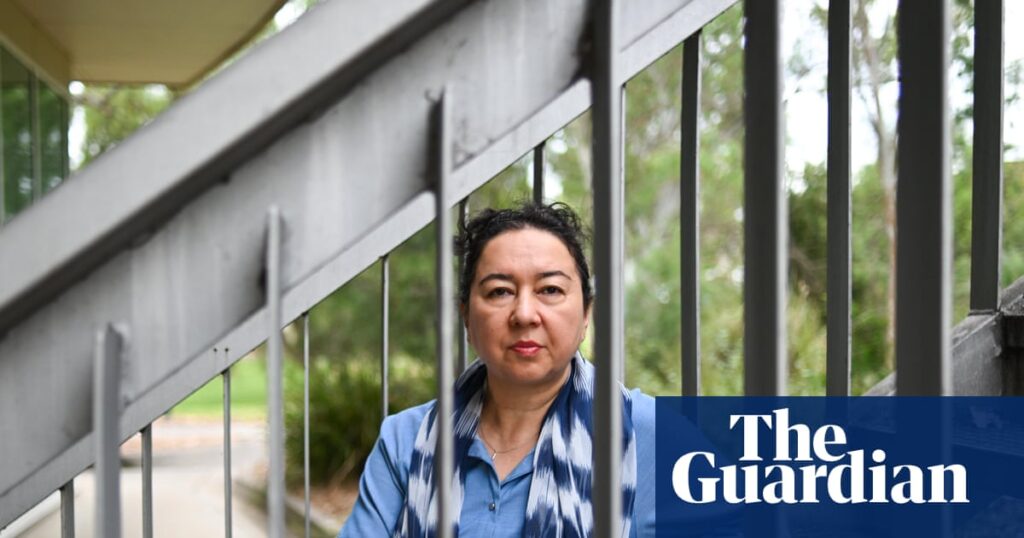
The letter was effusively polite, yet the allegations it contained were anything but. “We have the honour to address you,” began the seven United Nations special rapporteurs in their 2021 correspondence to the head of Jiangsu Guotai Guosheng garment factory in China’s Xinjiang province. The letter detailed severe allegations of forced labor involving China’s Uyghur minority, reportedly subjected to brutal working conditions, arbitrary detention, and re-education.
Four years later, this letter has become a pivotal piece in a federal court case in Australia. The Australian Uyghur Tangritagh Women’s Association (AUTWA) is taking legal action against retail giant Kmart, seeking preliminary discovery of documents that could reveal potential links between Kmart’s supply chains and forced labor in Xinjiang, also known as East Turkestan. Kmart’s 2025 factory list includes Guotai, raising concerns about the retailer’s ethical sourcing practices.
Allegations of Forced Labor
According to the UN rapporteurs, Uyghur workers are reportedly forced to work in fenced-in factories, facing intimidation, coercion, and surveillance. The letter expressed “grave concerns” about conditions that could amount to torture or other inhuman treatment. Despite these serious allegations, there was no response from the factory.
Kmart, however, denies any connection to forced labor. The company insists that its ethical sourcing program, which has been in place for over 15 years, helps identify and mitigate modern slavery risks. A spokesperson for Kmart stated, “Transparency is a key principle of our Ethical Sourcing Program. Kmart publicly discloses its Factory List on its website and was the first Australian retailer to do so.”
Australia’s Modern Slavery Act Under Scrutiny
The case against Kmart has reignited discussions about the effectiveness of Australia’s Modern Slavery Act. In 2023, former ombudsman Prof John McMillan reviewed the Act, finding that it had not yet caused meaningful change for those living in modern slavery conditions. Among his recommendations were obligations for companies to address slavery risks actively, not just report them, and penalties for non-compliance.
Despite these recommendations, key changes have not been implemented. The Australian government released a consultation paper in July 2024, but anti-slavery advocates warn that without stronger measures, Australia risks falling behind other jurisdictions like the US and EU, which have stricter import bans on goods linked to forced labor.
Expert Opinions and Advocacy
Chris Evans, Australia’s anti-slavery commissioner, emphasized the need for businesses to understand their supply chains better and take action against known risks. “Australian businesses must do more to understand their supply chains and take action to address known risks,” he said. Meanwhile, Ramila Chanisheff, president of AUTWA, stated that the court action seeks to create transparency and accountability.
“The state-sanctioned mass imprisonment, repression, and forced labor of Uyghur people is a known phenomenon,” Chanisheff said. “We’re demanding answers from Kmart so we know whether its actions live up to its words about addressing forced labor risks in its supply chain.”
Implications for Australian Retailers
The implications of this case could be significant for Australian retailers. Freya Dinshaw, associate legal director at the Human Rights Law Centre, noted that the case highlights weaknesses in the current legal framework. “It shouldn’t be left to members of the public to take companies to court and force them to open their books where there are suspicions of links to modern slavery,” she said.
Anti-slavery campaigners Fuzz and Carolyn Kitto argue that combating modern slavery requires constant vigilance and adaptation. They advocate for a “due diligence” model, obliging companies to act on slavery risks, not just report them. “Modern slavery doesn’t stay still,” Fuzz Kitto remarked. “In our estimation … about 30,000 new people every single day are being caught in slavery. And we can get out about 180 a day: 30,000 in, 180 out.”
Technological Solutions and Future Actions
Technological advancements are providing new tools in the fight against modern slavery. Platforms like Million Makers allow factory workers to report conditions anonymously, while technologies such as SourceCertain and Oritain can trace the origins of products, ensuring transparency in supply chains.
Fiona David, founder of Fair Futures, stressed the need for Australia’s legislation to ban the import of goods made with forced labor. “It’s unacceptable that in Australia at the moment, there is nothing to stop or prohibit people from importing goods into Australia that have been made or that have been suspected to have been made by forced labor,” she said.
As the case against Kmart unfolds, the spotlight remains on Australian businesses to uphold ethical practices and for the government to strengthen its legislative framework to combat modern slavery effectively.







